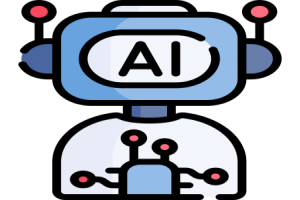
Artificial Intelligence (AI) is no longer a futuristic concept—it’s here, and it’s transforming the way businesses operate. Among its most exciting applications are AI agents: autonomous systems that perform tasks, make decisions, and interact with users or systems to achieve specific goals. From automating processes to enhancing customer experiences, AI agents have become indispensable tools for businesses looking to stay competitive in a rapidly evolving digital landscape.
Let us explore how AI agents for business a little bit, understand what it is, why it is so import to business, and how to implement it.
What is AI Agent?
An AI agent is a computer program or system powered by artificial intelligence, designed to perform specific tasks autonomously. These agents use technologies like machine learning, natural language processing (NLP), and computer vision to understand their environment, make decisions, and take actions to achieve predefined objectives. AI agents can operate independently or collaborate with humans, making them highly versatile for a wide range of applications. Examples of AI agents include chatbots, virtual assistants, recommendation systems, and predictive analytics tools. Their ability to learn from data and adapt to changing conditions makes them invaluable for businesses in today’s data-driven world.
Why AI Agents for businesses
AI agents bring a host of benefits to organizations, making them a must-have for forward-thinking enterprises. Here’s how they deliver value:
1. Automating Repetitive Tasks
Imagine freeing your team from mundane, repetitive tasks. AI agents can handle these with ease—whether it’s answering customer queries, scheduling meetings, or processing transactions. This allows your employees to focus on higher-value work, boosting efficiency and reducing operational costs.
2. Delivering Exceptional Customer Experiences
AI agents, such as chatbots and virtual assistants, are redefining customer service. They’re available 24/7, provide instant responses, and can even personalize interactions based on customer data. From recommending products to resolving issues, AI agents ensure customers feel valued and supported, improving satisfaction and loyalty.
3. Enabling Smarter, Data-Driven Decisions
Businesses thrive on data, but making sense of it can be overwhelming. AI agents excel at analyzing massive datasets in real time, uncovering insights that help with strategic decisions. Whether it’s predicting market trends, optimizing supply chains, or identifying risks, AI agents empower organizations with actionable intelligence.
4. Scaling Operations Effortlessly
Need to handle thousands of customer queries simultaneously? No problem. AI agents scale operations without additional costs. They adapt to growing demands while maintaining consistent performance, making them ideal for businesses experiencing rapid growth.
5. Reducing Costs
AI agents offer cost savings by automating labor-intensive processes and eliminating the need for overtime or additional staff for repetitive tasks. They also minimize errors, saving money on corrections and inefficiencies.
How to Implement AI Agents
To maximize the benefits of AI agents, it’s crucial to approach their implementation strategically. Here are some best practices to guide you:
1. Set Clear Objectives
Start by identifying the specific problems you want AI agents to solve. Are you looking to improve customer service? Automate back-office tasks? Enhance decision-making? Defining clear goals ensures a focused and successful implementation.
2. Start Small and Scale Gradually
Begin with a pilot project or a single department to test the effectiveness of AI agents. Once you see results, scale their adoption across other areas of your business.
3. Invest in Quality Data
AI agents rely on data to function effectively. Ensure your data is accurate, relevant, and free from bias. Proper data management practices, such as cleaning and labeling, are essential.
4. Seamlessly Integrate AI Agents
Your AI agents should work in harmony with existing systems and workflows. For example, customer service chatbots should connect to your CRM, while supply chain AI agents should integrate with inventory management tools.
5. Train Your Team
Employees who interact with AI agents need to understand their capabilities and limitations. Offer training programs to help your team use AI agents effectively and interpret their outputs correctly.
6. Monitor and Optimize Continuously
AI agents aren’t “set-it-and-forget-it” solutions. Regularly monitor their performance, gather feedback, and refine their algorithms to keep them relevant and accurate.
7. Prioritize Ethics and Compliance
Ensure your AI agents adhere to ethical standards and comply with regulations. Be transparent with users about when they’re interacting with an AI agent, and have safeguards in place to prevent misuse.
- Log in to post comments